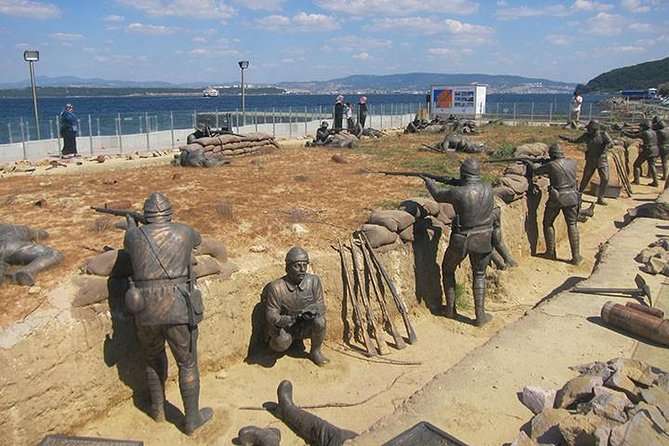If you’ve ever wondered what it’s like to be a digital nomad in Turkey, you’re in the right place. Turkey is a blend of Europe and Asia, where ancient history and modern living coexist. From cities to beautiful coastlines, there’s something for everyone. I have been solo traveling Turkey for over 4 years and I’m going to tell you everything you need to know about living and working as a digital nomad in Turkey.
Can I Be a Digital Nomad in Turkey?
Absolutely! Turkey is becoming a popular destination for digital nomads, especially with the introduction of its new digital nomad visa. With its affordable cost of living and diverse culture, it’s no wonder why. Here’s a closer look at why Turkey is a fantastic choice:
- Cost of Living: Turkey offers a relatively low cost of living compared to Western Europe and North America. For instance, a one-bedroom apartment in Istanbul’s city center might cost around $500-$800 per month, while in smaller cities like Antalya, it could be as low as $300. Dining out is affordable too; a meal at a mid-range restaurant costs about $10-$15.
- Cities: Istanbul is a busy city with a diverse food scene, and a growing expat community. Other popular cities include Izmir, known for its coastal beauty and relaxed lifestyle, and Antalya, famous for its stunning beaches and historical sites.
- Reliable Internet: Major cities and tourist areas have good internet connectivity, with average speeds of around 20-35 Mbps. Cafes and coworking spaces often provide high-speed Wi-Fi, making it easy to work remotely.
- Expat Community: Turkey has a growing community of digital nomads and expats. Facebook groups like “Digital Nomads Turkey” and “Expats in Istanbul” are great places to connect with others, share tips, and find meetups.
Is It Safe To Visit Turkey
Turkey is under a Level 2 advisory, meaning travelers should exercise increased caution. This is primarily due to the potential for terrorism and political unrest in certain areas of the country. After living here for four years, I have found Turkey to be a relatively safe country with few major crimes committed against tourists or expats. Read my Istanbul Safety Guide for everything you should know before visiting.
What is the Best Month to Visit Turkey?
Turkey’s climate varies significantly from region to region, but generally, the best times to visit are:
- Spring (April to June): Mild and pleasant weather, ideal for exploring historical sites and enjoying outdoor activities. Average temperatures range from 15°C to 25°C (59°F to 77°F).
- Fall (September to November): Similarly mild weather, fewer tourists, and beautiful autumn colors. Temperatures range from 20°C to 30°C (68°F to 86°F) in September, cooling down to 10°C to 20°C (50°F to 68°F) by November.
It is very hot and humid in the summer.
What Language is Spoken in Turkey?
The official language of Turkey is Turkish. While it can be helpful to learn a few basic phrases, you’ll find that many people in tourist areas and major cities speak limited English. Here are some useful Turkish phrases:
- Hello: Merhaba
- Thank you: Teşekkür ederim
- Please: Lütfen
- Yes: Evet
- No: Yok or Hayir
Language apps like Duolingo and Babbel can be helpful for picking up basic Turkish. Additionally, you’ll find that younger generations and those working in the tourism industry are more likely to speak English.
What Currency is Used in Turkey?
Turkey uses the Turkish Lira (TRY). You’ll find ATMs widely available, and credit cards are commonly accepted in most places. However, it’s always a good idea to have some cash on hand for smaller vendors or markets. Here are some tips for managing your money in Turkey:
- ATMs: Look for ATMs from major banks like Halkbank, Garanti, and Deniz Bank. These usually have English language options and accept international cards. Halkbank has no fees when using my American debit cards.
- Currency Exchange: You’ll find currency exchange offices (döviz) in airports, tourist areas, and shopping centers. Rates can vary, so it’s wise to compare a few before exchanging large amounts. I don’t know why anyone would use these when ATM’s are available and provide better rates.
- Mobile Payments: Services like Apple Pay are widely accepted, but it’s best to also keep cash and your physical card on hand. I don’t use Google Pay.
Intercity Travel: Getting Around Turkey
Getting around Turkey is relatively easy, thanks to its well-developed transportation network. Here are some of the best ways to travel between cities:
- Flights: Domestic flights are affordable and the quickest way to travel long distances. Turkish Airlines and Pegasus are the main carriers, offering numerous daily flights between major cities. For example, a flight from Istanbul to Antalya takes about 1.5 hours and costs around $30-$60 if booked in advance.
- Buses: Intercity buses are comfortable and a popular choice for budget travelers. Companies like Metro Turizm and Kamil Koç offer extensive routes with modern, comfortable buses. A bus journey from Istanbul to Cappadocia takes around 11 hours and costs approximately $20-$30.
- Trains: The train network is improving, with high-speed trains connecting major cities like Istanbul, Ankara, and Konya. For example, the high-speed train from Istanbul to Ankara takes about 4.5 hours and costs around $15-$35, depending on the cabin class.
- Car Rentals: For more flexibility, consider renting a car. Major international companies like Hertz and Europcar operate in Turkey. Rental prices start at around $20 per day. Just be aware of local driving customs, and note that traffic in major cities is hectic.
Accommodation in Turkey
From budget hostels to luxury hotels, Turkey has a wide range of accommodation options. Here are some suggestions:
- Hostels: Ideal for budget travelers, you’ll find hostels in major cities and tourist areas. For instance, Cheers Hostel in Istanbul offers private rooms starting at around $30 per night. Other options include Hush Hostel Lounge in Istanbul and Taksim Hostel Green House.
- Mid-Range Hotels: Options like the Rixos Pera in Istanbul offer comfortable stays without breaking the bank, with rooms starting at $80 per night. In Izmir, the Key Hotel offers stylish rooms with rates around $70-$120 per night.
- Luxury Hotels: Splurge at places like the Ciragan Palace Kempinski in Istanbul, where rooms start at $300 per night, offering stunning views of the Bosphorus and top-notch amenities. In Antalya, the Rixos Downtown Hotel provides luxury accommodations with prices starting at $150 per night.
- Serviced Apartments: Companies like Blueground offer fully furnished apartments with flexible leases, perfect for longer stays. In Istanbul, you can find apartments starting at $1000 per month, complete with modern amenities and central locations.
- Coliving Spaces: Check out places like Atölye Istanbul for a community-focused living and working environment. Rates at coliving spaces like Atölye start at around $600 per month, including utilities and access to coworking facilities.
Coworking in Turkey
Turkey’s coworking scene is thriving, especially in cities like Istanbul. Here are some top spots:
- Kolektif House: Multiple locations in Istanbul, known for its vibrant community and modern amenities. Monthly memberships start at around $150, providing access to comfortable workspaces, meeting rooms, and networking events.
- Impact Hub Istanbul: A global network with a strong focus on social innovation. Memberships range from $50 for part-time access to $200 for a full-time desk, including access to events and workshops.
- Workinton: Locations in Istanbul, Ankara, and Izmir, offering flexible plans and great facilities. Prices start at around $100 per month for hot desking, with private offices available for higher rates.
- Juno Coworking: Located in Antalya, this space is perfect for digital nomads looking for a coastal city. Memberships start at around $80 per month, including high-speed internet, coffee, and community events.
- Atölye Istanbul: A creative hub offering coworking, workshops, and events. Monthly memberships start at around $120, with options for dedicated desks and access to specialized equipment like 3D printers and design studios.
Dining in Turkey
Turkish cuisine is a delicious adventure you won’t want to miss. Here are some must-try foods and dining experiences:
- Street Food: Don’t miss out on simit (Turkish bagel), döner kebab, and midye dolma (stuffed mussels). In Istanbul, try Tarihi Karaköy Balıkçısı for fresh seafood street food, or head to Taksim Square for a variety of street food vendors.
- Traditional Restaurants: Try dishes like kebabs, lahmacun, and pide. Hafız Mustafa in Istanbul is famous for its desserts, while Kebapçı Halil Usta in Gaziantep offers some of the best kebabs in the country.
- Modern Eateries: Cities like Istanbul and Izmir have a growing number of modern, trendy restaurants offering both Turkish and international cuisine. Mikla in Istanbul offers a modern twist on Turkish cuisine with stunning views of the city, while Od Urla in Izmir is known for its farm-to-table dining experience.
- Seafood: Head to the coastal areas for fresh seafood. In Bodrum, try Orfoz Restaurant for a fantastic seafood experience, or visit 7 Mehmet in Antalya for a taste of the Mediterranean.
- Cafes: Turkey’s café culture is strong. Enjoy a cup of Turkish tea or coffee at one of the many charming cafes. Mandabatmaz in Istanbul is renowned for its rich Turkish coffee, and the House Cafe in Ortaköy offers a cozy atmosphere with views of the Bosphorus.
Pros and Cons of Being a Digital Nomad in Turkey
Pros:
- Affordable Cost of Living: Turkey is budget-friendly compared to many Western countries. For example, monthly expenses for a single person in Istanbul can range from $800 to $1200, including rent, food, transportation, and entertainment.
- Rich Culture and History: Endless opportunities for exploration and cultural immersion. Visit landmarks like the Hagia Sophia, Pamukkale, and Cappadocia’s fairy chimneys.
- Great Food: Turkish cuisine is diverse and delicious, with something for every palate. Don’t miss trying traditional dishes like İskender kebab, menemen (Turkish-style scrambled eggs), and gözleme (stuffed flatbread).
- Warm Hospitality: Turks are known for their friendliness and hospitality. You’ll often find locals eager to help or invite you for a cup of tea.
Cons:
- Language Barrier: While English is spoken in tourist areas, I’ve found it can be challenging in more rural areas. Learning basic Turkish can help bridge the gap.
- Internet Reliability: While generally good, internet speeds can vary, especially outside major cities. It’s advisable to have a backup mobile data plan.
- Political Climate: Turkey’s political situation can be unpredictable, so it’s essential to stay informed. Keep an eye on travel advisories and local news. In Istanbul, protests usually take place in the Taksim Square area.
Tips for Being a Digital Nomad in Turkey
Learn Basic Turkish: It goes a long way in daily interactions and shows respect for the local culture. Simple phrases like “Merhaba” (Hello) and “Teşekkür ederim” (Thank you) can be very helpful.
Stay Connected: Invest in a local SIM card for reliable mobile data. Turkcell, Vodafone, and Türk Telekom offer various plans. For instance, Turkcell’s tourist SIM card provides 20GB of data and 200 minutes for around $25.
Explore Beyond Istanbul: While Istanbul is fantastic, don’t miss out on other beautiful cities and regions like Cappadocia, Ephesus, and the Lycian Way. Each region offers unique experiences and landscapes.
Respect Local Customs: Turkey is a predominantly Muslim country, so be mindful of cultural norms and dress modestly, especially in more conservative areas. During Ramadan, be respectful of those fasting by not eating or drinking in public during daylight hours.
Be Adaptable: Embrace the unexpected and enjoy the adventure that comes with living in a different country. Flexibility is key, whether it’s dealing with different business hours or navigating public transportation.
Final Thoughts
Living and working as a digital nomad in Turkey offers affordability, culture, and diverse experiences. Whether you’re enjoying the busy streets of Istanbul, relaxing on the beaches of Antalya, or exploring the historical sites of Cappadocia, Turkey has something for every digital nomad.
Safe Travels!






